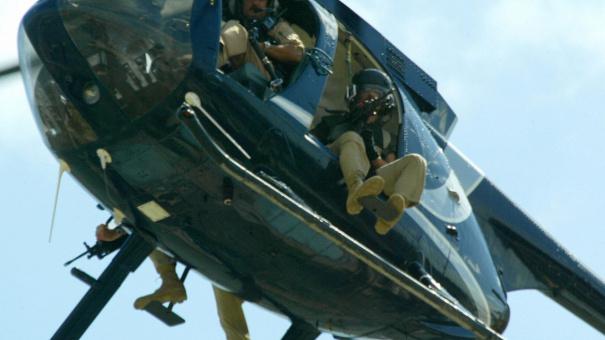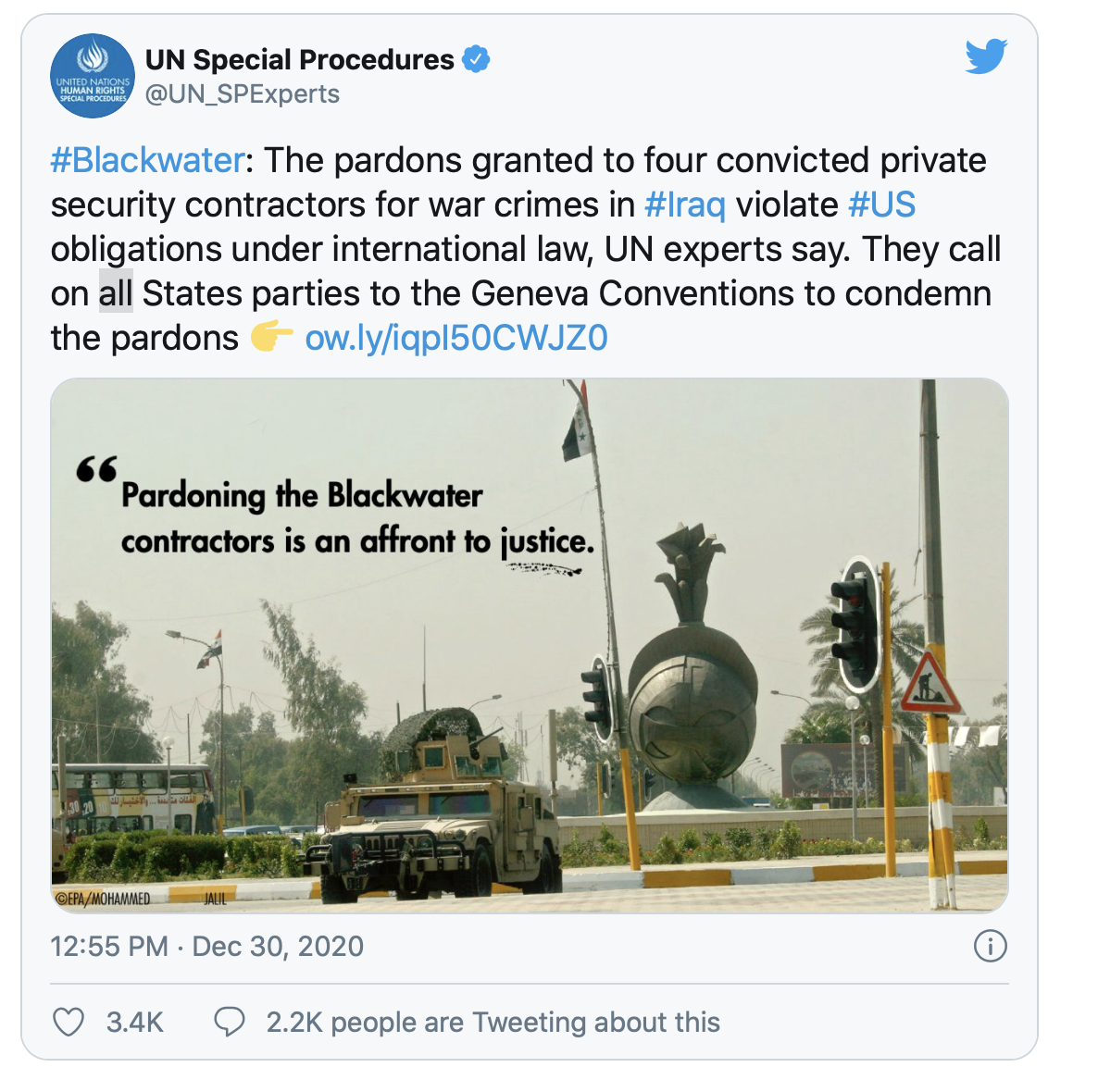US pardons Blackwater guards: An ‘affront to justice’
Five independent UN experts condemned United States President Donald Trump’s pardoning of private security contractors, convicted in 2015 for war crimes in Iraq, on Wednesday.
The four Blackwater Worldwide contractors were prosecuted and found guilty of multiple criminal acts committed during a 2007 massacre at Nisour Square in Baghdad, which left 14 unarmed civilians dead and at least 17 wounded
“Pardoning the Blackwater contractors is an affront to justice and to the victims of the Nisour Square massacre and their families,” said Jelena Aparac, Chair-Rapporteur of the Working Group on the use of mercenaries.
Andermining humanitarian law
The Geneva Conventions “oblige States to hold war criminals accountable” even when acting “as private security contractors”, the UN experts said, reminding that the men were legally tried and convicted for the crimes.
In 2015 the US courts found Nicholas Slatten guilty of first-degree murder, while Paul Slough, Evan Liberty and Dustin Heard were convicted of voluntary and attempted manslaughter.
President Trump pardoned all four on 22 December.
“These pardons violate US obligations under international law and more broadly undermine humanitarian law and human rights at a global level”, stressed Ms. Aparac on behalf of the group.
“Ensuring accountability for such crimes is fundamental to humanity and to the community of nations,” she added.
The UN experts upheld that pardons, amnesties, or any other forms of exculpation for war crimes “open doors to future abuses” when States contract private military and security companies for inherent State functions.
Moreover, the Working Group – also comprised of Lilian Bobea, Chris Kwaja, Ravindran Daniel and Sorcha MacLeod – expressed extreme concern that by permitting private security contractors to operate with impunity in armed conflicts, States would be encouraged to circumvent their humanitarian law obligations by outsourcing core military operations to the private sector.
Special Rapporteurs and independent experts are appointed by the Geneva-based UN Human Rights Council to examine and report back on a specific human rights theme or a country situation. The positions are honorary and the experts are not UN staff, nor are they paid for their work.

